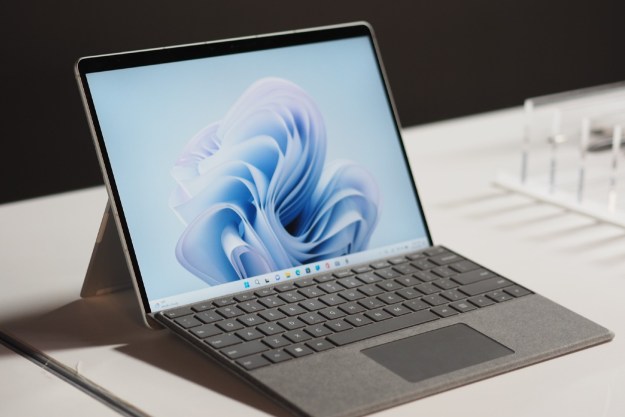Data caps are bogus.
I’ve been saying this for years. But now that many data caps have been suspended — ostensibly as a support measure during the COVID-19 crisis — I don’t think they can be brought back. It took a global pandemic, but I think data caps are gone for good.

Let’s take a look back to how we got data caps in the first place, examine why they are now totally irrelevant, and analyze how decisions to suspend data caps prove they are totally unnecessary and should never come back.
History of the cap
Today, just about every mobile network offers unlimited calls and data plans. In fact, you have to dig deep for carriers who don’t, and those plans don’t make any financial sense when they are just $5 less than unlimited options.

It hasn’t always been this way, though. Just a few years ago, I had a limited number of minutes I could use, and if I went over that talk time, I had to either pay for a minutes package or pay a per-minute overage fee.
Back when mobile networks weren’t as robust — a time when your call might not actually go through during peak calling times or emergency events — I can see, in retrospect, that talk time could be considered a premium. But this is back when my phone was the size of a small brick and weighed about as much.
At a certain point, charging for minutes became ridiculous. What else are you paying for with a phone plan? Admin fees? Connection fees? No. You pay to make calls and should get to make as many of them as you want because it is no burden on the network. That’s what it was built for.
One can argue that paying for minutes helped build the network we rely on today, but once the network is up and running, you should get to use it as much as you want for a monthly fee, no? HBO doesn’t charge for how many minutes you watch. You watch as much as you want for $15.

The same was once true for mobile data. Metering perhaps made sense when high-speed mobile data was super-expensive to scale up and too many people choking up the pipes would seriously degrade everyone’s experience. But again, the networks have been built to accommodate our demands. We paid for it with our subscriptions, and now most mobile networks offer unlimited mobile data, even if they do slow down your downstream speeds when everyone’s streaming Tiger King on Netflix at the same time.
A legacy clings on
History begs us to ask these questions: How in the name of Carole Baskin have internet service providers (ISPs) been getting away with data caps? Never mind speed tiers for now — that’s another rant altogether. I’m just blown away that somehow data caps were, until very recently, still a thing.

This is especially shocking in a market like mine, where broadband is readily available, in some cases through multiple providers. But it seems worse so for those areas where the only internet service available comes via satellite and is as slow as a pregnant tortoise.
Yet somehow, those providers also had data caps on a service they should probably be paying you to put up with. They definitely shouldn’t be penalizing you for downloading too many photos a month — but they have, and they would continue if they could.
Somehow, ISPs have sailed under the radar. Until recently, I had a 1 terabyte data cap. I’m referring to Comcast’s Xfinity “plan” which allows me 1 TB of data, and if I go over that, it blesses me with 50 GB blocks, which it adds for $10 each until I max out at $200 — $200, just for internet use.
As an alternative, Xfinity “generously” offers an unlimited plan for an additional $50 a month, but that that doesn’t adjust the speed tier. Folks, I get unlimited data, calls, and texts on my phone for $40. That’s $10 less than Comcast’s upgrade fee, and that’s covers everything I will ever do on my phone.
Why should it be different on hard-lined internet to my home?
Why am I so fired up about this? It makes no sense. Unlimited data doesn’t cost the ISPs extra to provide it. It’s a cash grab, pure and simple. How do we know this?
We’re living it now
Supposedly, out of the goodness of their hearts — said nobody, ever, about Comcast, or any other ISP for that matter — most providers have “suspended” their data caps to allow lots more TV streaming and videoconferencing for those working from home (or flat-out stuck at home) during a global pandemic.
It’s been possible for some time now. The networks haven’t come crashing down under the strain, either. In fact, we’re using more data through our home internet connections than ever in history, and they are holding pretty steady.
To be clear, I’m not suggesting the networks didn’t have to put in some effort to “turn a few things on,” to put it as non-technically as possible. I do know their network engineers had to make some changes to prepare for the increase in bandwidth demands. But they did it quickly enough that most of us didn’t notice a downgrade in service. And here we are, taxing the ever-loving Netflix out of the system and doing just fine.
I thank the engineers who made that happen, and the techs who are helping folks keep their internet running, sometimes by having to enter a home, which could be risky. My frustration lies at the corporate level. How this age-old relic of a metered internet service managed to last this long is beyond me. But good luck putting that genie back in the bottle. Data caps should be gone for good.
Editors' Recommendations
- Use Comcast for internet? Your personal data may have been hacked
- Gaming monitors have been lying to us, and it’s time they stopped
- Forget deepfakes. Nvidia just proved how good graphics have become at confusing us
- These 5 data breaches have left the biggest mark on Americans



